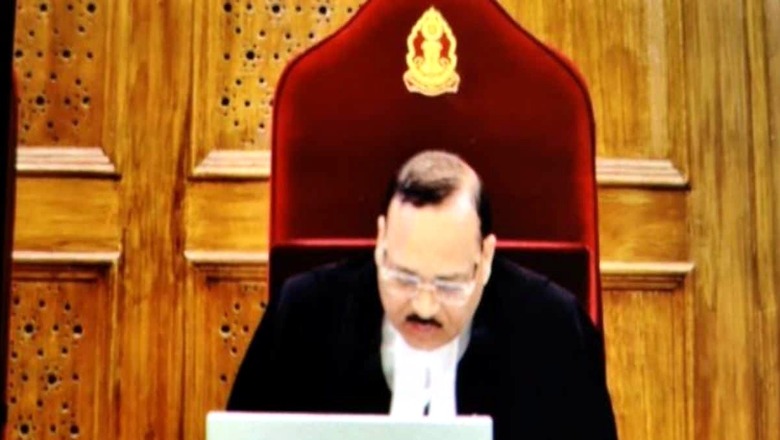
views
Justice Surya Kant, who was a part of the Supreme Court bench that upheld the constitutional validity of Section 6A of the Citizenship Act of 1955, rejected the idea of applying the provision to other states facing illegal immigrant issues such as West Bengal, saying “the problem in Assam is much severe”.
A Constitution Bench of Chief Justice of India (CJI) DY Chandrachud and Justices Surya Kant, MM Sundresh, JB Pardiwala, and Manoj Misra upheld the validity of the provision which allows Bangladeshi immigrants who came to Assam to register as Indian citizens in a 4:1 majority, with Justice Pardiwala dissenting.
Justice Surya Kant, in the majority judgment, said that those who have entered Assam from Bangladesh post the cut-off date of March 25, 1971, are declared to be illegal immigrants and thus section 6A is held to be redundant for them.
He also said, “Though we’ve upheld the validity of 6A, there is a lack of implementation which may cause injustice to many.”
He added that Assam has the power to identify and deport illegal migrants through not only the Foreigners Act but also under other similar laws for the purpose.
Justice Pardiwala, in his dissenting opinion, said, “Section 6A may be valid at the time of enactment but by afflux of time, it has become temporarily flawed.”
Section 6A of Citizenship Act
Section 6A of the Citizenship Act grants Indian citizenship benefits to illegal immigrants – mostly from Bangladesh, who entered Assam between January 1, 1966, and March 25, 1971.
It says those who came to Assam on or after January 1, 1966, but before March 25, 1971, from specified territories, including Bangladesh, in accordance with the Citizenship Act amended in 1985, and since then are residents of the northeastern state, must register themselves under Section 18 for acquiring Indian citizenship.
As a result, the provision fixes March 25, 1971, as the cut-off date for granting citizenship to migrants, particularly those from Bangladesh, residing in Assam.
Assam Movement
The Assam Movement (also known as anti-foreigners’ agitation) was a popular uprising in Assam, that demanded the Government of India detect, disenfranchise, and deport illegal migrants. Led by the All Assam Students Union (AASU) and All Assam Gana Sangram Parishad (AAGSP) the movement defined six years (1979–1985) sustained civil disobedience campaigns, political instability, and widespread ethnic violence. The movement ended in 1985 with the Assam Accord.














Comments
0 comment